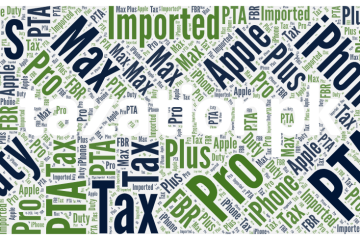Understanding how Pakistan taxes Profit on debt or Bank Profits is crucial for both individuals and businesses receiving income from investments and deposits. This article explores the relevant sections of the Income Tax Ordinance (ITO) 2001, explaining who is liable for tax, tax calculation methods, and exemptions.
What is Profit on Debt?
The ITO defines “profit on debt” as income earned on various financial instruments, including:
- Interest on bank accounts and deposits (National Savings Scheme and Post Office Savings Accounts)
- Profit on government securities (National Savings Scheme)
- Returns on investment in sukuks (Islamic bonds)
- Interest on corporate bonds and debentures
Who Pays Tax on Profit on Debt?
The tax burden for profit on debt primarily falls on the payer of the income, not the recipient. This means banks, financial institutions, and government entities typically deduct tax at the source when making interest or profit payments.
Tax Withholding Rates & Tax Treatment:
The specific tax rate applied depends on the recipient’s category:
- Individuals /AOPs / Companies: These entities face withholding tax rates as 15% Filers and 35% Non Filers.
- Difference B/w Individual and Companies:The tax deducted at source is final/minimum liability for individual /AOPs however Companies can adjust the tax deducted against their final liability.
- Zakat Deduction: The payer can deduct the amount of Zakat (2.5%) paid by the recipient from the gross profit before applying withholding tax.
- Profit on Debt Exceeding PKR 5 Million: where profit on debt exceeds 5 Million for a Tax Year it is taxed as normal income i.e Normal business slab rates will be applicable. Hence the difference of taxes deducted at source and the final tax liability will be paid by the taxpayer him/herself.
- Non Residents:ÂTax on profit on debt is not applicable on non-residents. The exemption certificate shall be provided to the withholding agent.
Withholding Tax Rate for Defense Saving Certificates:
This tax is deducted at the source, meaning it is taken out of the profit before it is paid to the certificate holder. The rate varies based on the tax filer status.
- Filers: Individuals who file their income tax returns are subject to a 15% withholding tax on their DSC profits.
- Non-filers: Individuals who do not file their income tax returns are subject to a higher withholding tax of 35% on their DSC profits.
Withholding Tax Rate for Behbood Saving Certificates:
No, withholding tax is not collected on the profit earned on Behbood Savings Certificate. This means that the 5% applicable tax rates on Behbood Savings will be paid directly by the taxpayer.
In Nutshell:
Profit on debt taxation in Pakistan can be complex, with multiple withholding rates and exemptions. It’s important to consult with a tax professional to understand your specific situation, including your tax residency status, type of income, and potential exemptions. They can help you determine your tax liabilities, ensure compliance with regulations, and maximize any available tax benefits.








A very concise, well explained and informative article. However, following points may be elaborated, please: –
“Profit on Debt Exceeding PKR 5 Million: where profit on debt exceeds 5 Million for a Tax Year it is”
Non Residents: Tax on profit on debt is not applicable on non-residents.
Profit on Debt Exceeding PKR 5 Million: where profit on debt exceeds 5 Million for a Tax Year it is taxed as normal income.
Tax on profit on debt is not applicable on non-residents.
A separate article is available on the same topic which explains the pre-requisites in detail Titled “Not All Profits Get Taxed in Pakistan: A Guide for Foreign Investors and Returning Pakistanis”
In case of Profit on Debt Exceeding PKR 5 Million, can we take profit upto 5 million in final tax category i.e. @ 15% and the excess amount from 5 million under normal tax?
No, that will be taxed at Individual (Business) tax rates as applicable.
sir ,what will be the rate in that case
I’m retired since last 7 years at the age of 60 years the end benefits were invested in Behbood Rs. 5,000,000 and remaining in SSC and National Savings deducted 15 percent WHT on SSC profit but they don’t deduct any WHT on Behbood profit but total profit in a year is Rs 800,000 and my expenses are more than the profit on Behbood. Please advise if the entire amount of profit is exempted from tax or should I have to pay tax amount on certain trash hold of profit please advise